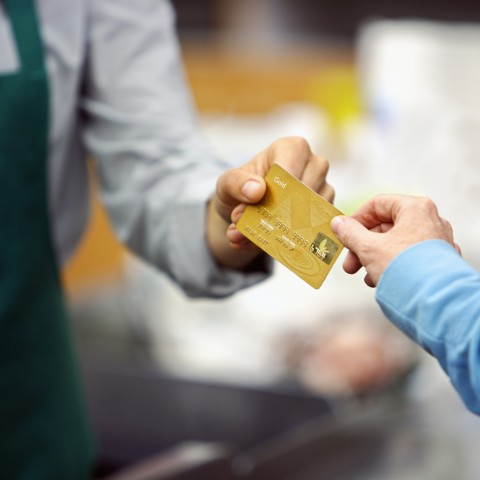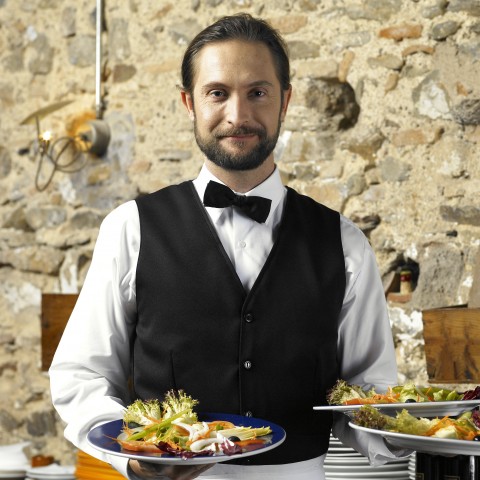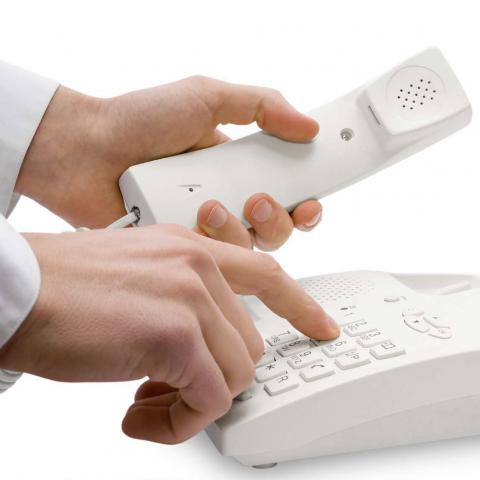Going to explore gorgeous Moscow Kremlin or travel back into the XIX century on the tiny cobblestone streets of Saint Petersburg? Or maybe you’re coming to study or work in Russia? Whatever your goal is, knowing useful Russian phrases for tourists will make your life easier in this snowy country.
If you’ve had trouble finding travel guides when having road trips in Russia, look no further. RussianPod101.com is here to help you learn Russian travel phrases in English, so that your stay in Russia will be much more enjoyable and comfortable.
Please note that hotel staff in Russia usually speak English, so we’re not going to cover hotel phrases in this article. But once you leave your hotel, it’ll become a little bit trickier to find a person who knows English. In Moscow and Saint-Petersburg you’ll probably find an English-speaking person to help you out, but in smaller cities this becomes a real challenge. Thus, it’s definitely good to know at least a few Russian language travel phrases.
So, let’s get started with common phrases in Russian for travelers in our Russian travel phrases guide!
Table of Contents
- Basic Russian Phrases for Travel
- Transport
- Shopping
- Restaurant Phrases
- Asking for and Giving Directions
- Emergencies
- Flattery Phrases
- Useful Phrases to Go through Language Problems
- Conclusion
1. Basic Russian Phrases for Travel
Even if your language skills are poor—or if you’ve just opened this article in a last attempt to learn at least a couple of the most important words—then you’ve come to the right place! These fifteen basic Russian language travel phrases are just enough to show that you’re really trying. You may also gain a few points in the eyes of Russian people.
1- Спасибо (Spasibo)
This means “Thank you,” and is one of the most common Russian travel phrases. You can use it in any situation, both formal and informal. For example:
Спасибо за помощь (Spasibo za pomoshch) — “Thank you for your help.”
2- Пожалуйста (Pozhaluysta)
This is translated into English as “You are welcome,” or “Please…” For example:
Пожалуйста, дайте пройти (Pozhalusta, dayte proyti) — “Please, let me walk past you.”
3- Извините (Izvinite)
This means, “Excuse me, sorry.”
When it comes to travel phrases in Russian grammar, you can also ask for forgiveness with Простите (Prostite) — “Sorry.”
Check out our article about how to say “I’m sorry” in Russian if you want to know more.
4- Привет (Privet)
That means informal “Hi.” Alternatively, Здравствуйте (Zdravstvuyte)—is formal “Hello.” If you want to know more, please, read our article about Russian ways to say Hello.
5- Пока (Poka)
This easy word is an informal way of saying, “Bye.” Don’t hesitate to use it with people your age or younger when you meet them while traveling. For older people, use the formal До свидания (Do svidaniya) — “Goodbye. ”
6- Да (Da)
This simply means, “Yes.” An important word to remember, isn’t it?
You can emphasize your answer by adding Хорошо (Khorosho), meaning “Good,” so it sounds like Да, хорошо (Da, khorosho), meaning “Yes, okay.”
Or you can add “of course”: Да, конечно! (Da, konechno!), meaning “Yes, sure!” or “Yes, of course!”
7- Нет (Net)
This simple means, “No.” You can make your refusal more polite by adding words of gratitude: Нет, спасибо (Net, spasibo) — “No, thank you.”
8- Вы не могли бы меня сфотографировать (Vy ni mogli by menya sfotografirovat’)
This important phrase for every traveler means, “Please, could you take a picture of me.” If you wanna take a picture with other people, use Вы не могли бы нас сфотографировать (Vy ni mogli by nas sfotografirovat’), meaning “Please, could you take a picture of us.”
9- Я не говорю по-русски (Ya ne govoryu po-russki)
This basic Russian travel phrase means, “I don’t speak Russian.” It’s a nice phrase to know even if you do know Russian, right? To get rid of annoying salespeople. ;-)
10- Хорошо (Khorosho)
This means “Good.” If things go better than good, use Отлично! (Otlichno!), meaning “Great! Perfect!” We hope that your Russian trip goes отлично!
Learn more conversational phrases from our vocabulary list.
By the way, do you know what the Russian word for “travel” is? It’s путешествовать (puteshestvovat’).
2. Transport
Transportation is one of the most vital aspects of a trip to anywhere, making Russian phrases for traveling related to this so important. Let’s look at some Russian travel words and phrases to help you find your way around Russia.
1- Taxi Phrases
Taxis are a popular way of transportation in Russia. Be aware of stopping the car on the street, because there are plenty of cases of robberies and fraudulent actions. The best way to order a taxi is through an app or by calling a taxi company. The prices will be absolutely the same as the prices of cars you stop on the street, and most of the time even lower.
You can use Uber or Yandex taxis (which works the same way as Uber). If you’re in a small city, you’ll probably be able to use either Uber or Yandex as well, but there might be less cars available, so give yourself a time cushion to account for searching for one. Or ask your friends or fellow travelers for a local taxi app.
Here are the phrases that will help you communicate with the driver:
- Мне нужно доехать до… (Mne nuzhno doyekhat’ do…) — “I need to get to… [location].” Use this phrase when you need to get somewhere using a transportation service.
- Остановите, пожалуйста… (Ostanovite, pozhaluysta…) — “Please, stop…” After that, add where you want to stop:
- …на остановке (…na ostanovke) — “…at the public transport stop.”
- …за перекрестком (…za perekryostkom) — “…after the crossroads.”
- …у светофора (…u svetofora) — “…near the traffic light.”
- …у следующего подъезда (…u sleduyushchego pod’yezda) — “…near the next entrance.”
- …у того подъезда (…u togo pod’yezda) — “…near that entrance.”
- …прямо здесь (…pryamo zd’es’) — “…right here.”
- …у того магазина (…u togo magazina) — “…on the public transport stop.”
- Можно остановить тут (Mozhno ostanovit’ tut) — “You can stop here.”
- Остановите, пожалуйста, чуть подальше (Ostanovite, pozhaluysta, chut’ podal’she) — “Please, stop a little bit further.”
2- Bus/Trolleybus/Tram/Metro Phrases
There are several means of public transportation in Russia—trams, trolleybuses, buses, and the metro. Use the following phrases to ensure that you don’t miss the right stop and to be polite during your ride:
- На какой остановке мне выходить? (Na kakoy ostanovke mne vykhodit’?) — “On which stop should I get off?”
- Подскажите, пожалуйста, какая следующая остановка? (Podskazhite, pozhaluysta, kakaya sleduyishchaya ostanovka?) — “Please, could you tell me what the next stop is?”
- Какая это остановка? (Kakaya eto ostanovka?) — “What stop is it now?”
- Сколько остановок до…? (Skol’ko ostanovok do…?) — “How many stops until… [location]?”
- Садитесь, пожалуйста (Sadites’, pozhaluysta) — “Sit, please.”
- In Russia, it’s considered polite to give up your seat for old people, pregnant ladies, and parents with little kids. It also looks really chivalrous when a guy gives up his seat for a girl.
Also, there’s one interesting means of public transport that’s not very common in other countries. It’s called маршрутка (marshrutka) — “route taxi.” It works like a shared taxi or a small bus, which drives along one route back and forth. Usually, it’s slightly more expensive than a bus/tram/trolleybus, but moves faster. It usually doesn’t stop on every public transport stop, so you’ll need to ask for a stop:
- На остановке остановите, пожалуйста… (Na ostanovke ostanovite, pozhaluysta…) — “Please, stop on the (next; nearest) public transport stop.”
- Use the phrase right before the needed stop. Remember to shout loud so the driver hears you. Don’t hesitate to shout one more time, if the driver has missed the stop and keeps driving: Остановите, пожалуйста! (Ostanovite, pozhaluysta!) — “Please, stop!”
To make public transportation more predictable, use the app Yandex Transport. After you set the starting point and final point of the route, the app shows you the fastest way to get there with the numbers of buses/route taxis/trams/trolleybuses needed. In big cities, such as Moscow and Saint Petersburg, you’ll also be able to see on the map where the needed bus is and how many minutes it will be until it arrives.
3- Suburban Train Phrases
If you want to travel between cities, especially if they’re four hours (or less) away from each other, consider taking a suburban sitting train. It’s usually quite cheap and fast. Unfortunately, for now you can’t buy a ticket online. You’ll have to buy a ticket at a ticket window or from a ticket machine. These are usually located on the way to the station before the security turnstile, or right at the station if it’s a smaller station. In 90% of stations, especially big ones, you’ll be able to pay by card.
These phrases will be useful for you:
- Электричка (Elektrichka) — “Suburban electric train.”
- Сколько стоит билет до…? (Skol’ko stoit bilet do…?) — “How much is the ticket to… [location]?”
- До…, пожалуйста (Do…, pozhaluysta) — “Ticket to… [location], please.”
- Где я могу купить билет на электричку? (Gde ya mogu kupit’ bilet na elektrichku?) — “Where can I buy a ticket on a suburban train?”
- Подскажите, пожалуйста, где туалет? (Podskazhite, pozhaluysta, gde tualet?) — “Please, tell me which way the bathroom is.”
4- Sleeping Train Phrases
Usually, tickets to sleeping trains are bought online, but you can also buy them at the ticket window on the station in advance.
While you’re on the train, you’ll probably have some questions. These phrases will help you deal with most of the situations that might occur:
- Когда мы приедем? (Kogda my priyedem?) — “When will we arrive?”
- Это какая станция? (Eto kakaya stantsiya?) — “What station is this?”
- Сколько стоим на этой станции? (Skol’ko stoim na etoy stantsii?) — “How long will we stay on this station?”
- У вас есть зарядка для… (U vas est’ zaryadka dlya…?) — “Do you have a charger for…?” (Where the blank space is the model of the phone.)
- …такого телефона? (…takogo telefona?) — “…this kind of the phone?” After that, show your phone.
- …Айфона? (…Ayfona?) — “…iPhone?”
- …Самсунга? (…Samsunga?) — “…Samsung?”
- Как пройти в вагон-ресторан? (Kak proyt’i v vagon-restoran?) — “How can I get to the restaurant-carriage?”
- Где можно покурить? (Gde mozhno pokurit’?) — “Where could I smoke?”
- Курить запрещено (Kurit’ zapreshcheno) — “Smoking is prohibited.” Usually, it’s prohibited to smoke on the trains, though people do it on stops outside.
- Проводник (Provodnik) — “Train conductor.” The provodnik’s room is located at the beginning of each wagon. You can ask him any questions during your trip.The provodnik usually checks tickets, and provides bed-clothes and food if it’s included in your ticket. Most of the time, the provodnik reminds you in advance about your stop, but still be careful and in control about where you should get off the train yourself. You can also order a tea from provodnik, but be ready to pay for it:
- Сколько стоит чай? (Skol’ko stoit chay?) — “How much does the tea cost?”
- Зеленый чай (Zelyonyy chay) — “Green tea”
- Черный чай (Chyornyy chay) — “Black tea”
- Вагон (Vagon) — “Wagon.” You’ll probably buy a ticket for one of these types of wagons:
- Плацкарт (Platskart) — “Open plan carriage.” This is the cheapest kind of carriage. Open plan coach has no separate rooms.
- Купе (Kupe) — “Сompartment.” There are separate rooms in these. Each room in a compartment coach has four beds: two upper ones and two lower ones. Upper ones are usually cheaper because you need to be physically fit to climb into them.
- СВ (Es Ve) — “Sleeping wagon.” This is the most expensive type. A sleeping wagon consists of separate rooms with two beds in each room.
- Постельное белье (Postel’noye bel’yo) — “Bed-clothes.” When you’re booking the ticket, check if they provide the bed-clothes or not. If you plan to sleep during your trip, then it’s better to include it in your ticket. However, nobody will blame you if you bring and use your own bed-clothes or a sleeping bag to lower your travel expenses.
3. Shopping
While you’re traveling, you may need to buy food from a shop, some souvenirs, or even hunt for great deals on clothes and other goods. This list has everything you need to know to feel comfortable while shopping:
- Рубль (Rubl’) — “Ruble.” This is the Russian currency. Learn more about the Ruble in our short video.
- Сколько это стоит? (Skol’ko eto stoit?) — “How much does it cost?”
- Вы не могли бы сделать скидочку? (Vy ne mogli by sdelat’ skidochku?) — “Could you give me a discount?”
- Что посоветуете? (Chto posovetuyete?) — “What would you recommend?”
- Дайте, пожалуйста, это (Dayte, pozhaluysta, eto) — “Give me this, please.”
- Картой можно оплатить? (Kartoy mozhno oplatit’?) — “Can I pay by card?”
- If you travel to smaller cities, paying by credit card might not be an option. You may hear a Russian salesperson offer you: Можете перевести на Сбербанк (Mozhete perevesti na Sberbank) — “You could transfer money to Sberbank.” This means that you can make a wire transfer to a Russian bank account.
- Sberbank is the most common bank in Russia. Please, note that if you transfer from a foreign bank account, the commission may be taken. Also, if you transfer from a Russian bank, whether Sberbank or another one, the commission might be taken as well. Please, carefully check this option with your bank in advance.
- Оплата наличными? (Oplata nalichnymi?) — “Should I pay by cash?”
Talking about prices requires knowing Russian numbers. Learn how to count in Russian and how to use these numbers in shopping phrases in our article.
4. Restaurant Phrases
Eating local food in local restaurants is usually one a “must” during a trip. And you, for sure, don’t wanna miss trying out traditional Russian food. Of course, you might have food or beverage preferences, or just want to feel free when communicating with waiters, so our list with the most important phrases will come in handy:
- Меню, пожалуйста (Menyu, pozhaluysta) — “Bring the menu, please.”
- Мне, пожалуйста, это (Mne, pozhaluysta, eto) — “Give me this one, please. ” This way, you can smartly avoid pronouncing the name of the dish. Just point to the picture, to the menu item, or to the food on the shop window.
- Воду, пожалуйста (Vodu, pozhaluysta) — “Craft beer.”
- Вода с газом (Voda s gazom) — “Sparkling water, soda.”
- Газированная вода (Gazirovannaya voda) — “Sparkling water, soda.”
- Вода без газа (Voda bez gaza) — “Still water.”
- Негазированная вода (Negazirovannaya voda) — S”till water.”
- Пиво, пожалуйста (Pivo, pozhaluysta) — “Beer, please.”
- Светлое пиво (Svetloye pivo) — “Light beer.”
- Темное пиво (Tyomnoye pivo) — “Dark beer.”
- Нефильтрованное пиво (Nefil’trovannoye pivo) — “Unfiltered beer.”
- Крафтовое пиво (Kraftovoye pivo) — “Craft beer.”
- Я вегетарианец (Ya vegetarianets) — “I’m a vegetarian.”
- Я веган (Ya vegan) — “I am vegan.” Please, note that your waiter probably won’t know the difference between being a vegan and being a vegetarian. Check out the list of ingredients on the menu carefully, and if you order a salad, ask them to bring the sauce (dressing) separately, just in case: Соус отдельно, пожалуйста (Sous otdel’no, pozhaluysta) — “Bring the sauce separately, please.”
- Я не ем мясо. Какие у вас блюда без мяса? (Ya ne yem myaso. Kakiye u vas blyuda bez myasa?) — “I don’t eat meat. Which dishes are without meat?”
- У меня аллергия на… (U menya allergiya na…) — “I’m allergic to…”
- Это очень вкусно! (Eto ochen’ vkusno!) — “It’s really tasty!”
- Официант! (Ofitsiant!) — “Waiter!”
- Посчитайте, пожалуйста (Poschitayte pozhaluysta) — “Bring the bill, please.” You’ll sound really “Russian” if you use this phrase. Literally, the translation is “Count, please.”
- Счет, пожалуйста (Shchot, pozhaluysta) — “Bill, please.”
- Оплата картой (Oplata kartoy) — “Payment by card.”
- Оплата наличными (Oplata nalichnymi) — “Payment by cash.”
If you want to feel even more confident in a Russian restaurant, check out our restaurant vocabulary list.
5. Asking for and Giving Directions
Getting lost in a foreign country is a terrifying thing. That’s why it’s important to make sure to remember basic Russian expressions—or even print them out on paper in case your phone dies:
- Где я? (Gde ya?) — “Where am I?”
- Где находится… (Gde nakhoditsya…?) — “Where is… [location] located?”
- Подскажите, пожалуйста, где ближайший туалет? (Podskazhite, pozhaluysta, gde blizhayshiy tualet?) — “Please, could you tell me where the nearest bathroom is?”
- Как мне дойти до…? (Kak mne doyti do…?) — “How can I get to… [location]?”
- Идите… (Idite…) — “Go…”
- …прямо (pryamo) — “…straight”
- …направо (napravo) — “…to the right”
- …налево (nalevo) — “…to the left”
- …туда (tuda) — “…that way”
- …сюда (syuda) — “…this way”
If you feel like going into the wild—and we know that Russian wilderness can be amazingly beautiful and attractive for hiking-lovers—study our vocabulary list with direction words that will come in handy when you use the map.
6. Emergencies
The Russian emergency number is 112. The operator will redirect your call to the police, ambulance, fire brigade, gas alarm, or rescuers.
- Помогите! (Pomogite) — “Help me!”
- Спасите! (Spasite!) — “Save me!”
- Пожар! (Pozhar!) — “Fire!”
- Вызовите скорую! (Vyzovite skoruyu!) — “Call an ambulance!”
- Здесь есть доктор? (Zdes’ yest’ doctor?) — “Is there a doctor?”
-
Я потерял свой паспорт (Ya poteryal svoy pasport) — “I’ve lost my passport.” (For a male.)
- Я потеряла свой паспорт (Ya poteryalа svoy pasport) — “I’ve lost my passport.” (For a female.)
- Я потерял свой кошелек (Ya poteryal svoy koshelyok) — “I’ve lost my purse.” (For a male.)
- Я потеряла свой кошелек (Ya poteryalа svoy koshelyok) — “I’ve lost my purse.” (For a female.)
Study our vocabulary list with more words and phrases for emergency situations.
7. Flattery Phrases
When you travel in a foreign country, you’ll probably get a chance to make new Russian friends. Learn some phrases to leave a good first impression:
- Мне нравятся русские (Mne nravyatsya russkiye) — “I like Russians.”
- Я люблю русскую еду (Ya lyublyu russkuyu yedu) — “I love Russian food.”
- Я люблю Россию (Ya lyublyu Rossiyu) — “I love Russia.”
- Я хочу быть твоим другом (Ya khochu byt’ tvoim drugom) — “I wanna be your friend.”
- У тебя есть Фейсбук или Инстаграм? (U tebya yest’ Feysbuk ili Instagram?) — “Do you have Facebook or Instagram?”
8. Useful Phrases to Go through Language Problems
Well, even if you’ve learned all the phrases above, in some situations, the phrase you need may disappear from your memory or you might not understand what that gloomy Russian is saying. Don’t worry, just use the following phrases:
- Вы говорите по-английски? (Vy govorite po-angliyski?) — “Do you speak English?”
- Я не понимаю (Ya ne ponimayu) — “I don’t understand.”
- Вы не могли бы повторить? (Vy ne mogli by povtorit’?) — “Could you repeat, please?”
- Пожалуйста, говорите помедленнее (Pozhaluysta, govorite pomedlenneye) — “Please, speak more slowly.”
- Я не говорю по-русски (Ya ne govoryu po-russki) — “I don’t speak Russian.”
- Напишите это, пожалуйста (Napishite eto, pozhaluysta) — “Write it down, please.”
- Как это читается? (Kak eto chitayetsya?) — “How do you read this?”
9. Conclusion
We hope you now know why travel phrases, to learn Russian, are so vital. Travel phrases in Russian language learning provide you with helpful information for when you’re in a pinch, and also give you cultural context to make learning easier and more relevant!
Make sure that you return to the basic Russian words for tourists list and look through it one more time, as it’s the most important part of the article. Believe me, Russian people will be kinder to you once they understand that you’ve come prepared. Having some travel phrases in your Russian vocabulary is the first step to a good first impression.
Remember that knowing and using foreign words are totally different skills. Find a Russian-speaking language partner to practice or consider taking some lessons with our MyTeacher program for Russian-learners to start using the vocabulary for free and to feel more comfortable while you’re staying in Russia. Our teachers are native Russians and they’ll help you digest the most important and useful Russian phrases for tourists.
We wish you a great Russian journey that you’ll remember with excitement for a long time!




















